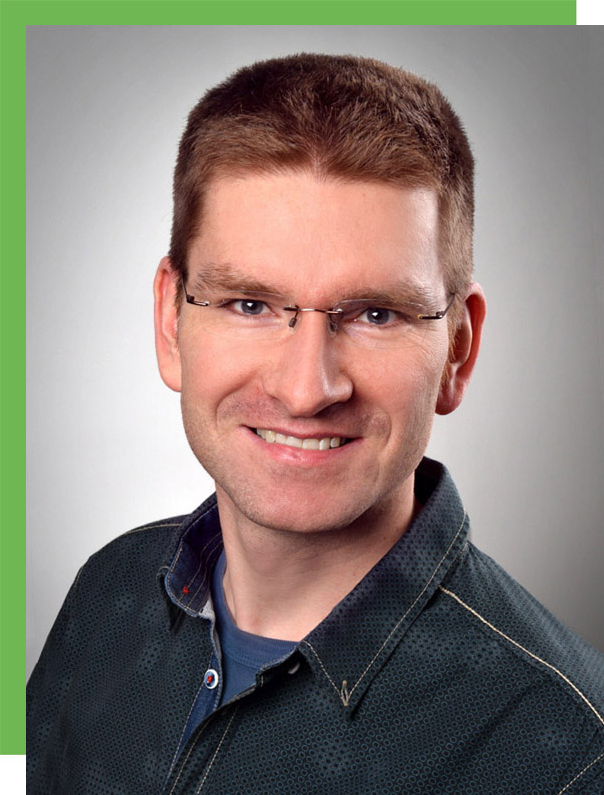
Robin Gröpler
Driven by a desire to improve systems and processes
My journey began
...at the University of Magdeburg in Germany where I studied mathematics with a minor in theoretical physics. Initially, I was deeply interested in fundamental research – mathematical analysis, physical laws and the theoretical framework behind them. During my time as a research assistant at the university, I transitioned into applied research, working on numerical simulations across diverse engineering domains like chemical engineering, particle science and aerospace. This interdisciplinary exposure, particularly through a graduate school environment with people from various academic and cultural backgrounds, sparked my appreciation for collaborative, application-driven science. I realised that applied research fulfils me more – I could see the real-world impact of my work and collaborate with experts across fields. This mindset naturally led me to the Institut für Automation und Kommunikation e.V. (ifak) in Magdeburg in 2019, where I’ve worked ever since.

Steep learning curve
Joining ifak brought me into immediate contact with collaborative research projects, many of them international and interdisciplinary. It was a steep learning curve, particularly in areas like software engineering and test automation, but I had great mentorship from professionals and the chance to guide master’s students, which helped me develop fast. One area I’ve been particularly involved in is natural language processing (NLP), applying it to software engineering challenges, a field that sits right at the intersection of AI and practical development.
Passion for innovation
My passion for innovation comes from a constant drive to improve systems and processes. I’ve always tried to step back, analyse problems from different perspectives, and ask how we can do things more efficiently or intelligently. That mindset has shaped my role not just as a researcher, but as a contributor to solutions in complex engineering environments. This passion also drew me to ITEA with whom ifak has a long history, participating in over 15 projects since the early 2000s. When I joined, I began as a regular contributor in projects like TESTOMAT and XIVT, which dealt with software quality. Over time, I moved into leadership roles, building consortia and shaping proposals, like in the SmartDelta project and now as the project leader of GENIUS, a large initiative exploring generative AI in software development.
Vibrant community
ITEA has had a significant impact on my professional journey. It’s not just the access to cutting-edge knowledge, but the people in the vibrant, reliable community, close contact with industrial partners, and the opportunity to exchange insights with experts from around Europe and beyond. The bottom-up nature of ITEA encourages real innovation, enabling you to bring your own ideas to the table and develop them into real-world solutions.
Transformative AI
We're currently witnessing a major shift due to AI, especially large language models, and their transformative effects across industries. However, many industrial partners remain cautious, and one of our goals is to help them navigate this space responsibly, delivering trusted, sustainable solutions. We also see potential in related areas such as human-AI interaction, AI-supported workflows, and the evolving nature of standardization itself in a probabilistic AI landscape.
I'm particularly interested in AI-driven solutions that augment human decision-making by providing informed, efficient and context-aware support, thereby enhancing human engagement rather than replacing it. We need to ensure trustworthiness, ethical responsibility, and legal compliance in AI systems, especially as they become integrated into critical infrastructures and workflows.
It’s not just the access to cutting-edge knowledge, but the people in the vibrant, reliable community
My journey continues
Stepping into a project leadership role has been both rewarding and challenging as well as a learning process
in
terms of managing people, communication, expectations. This role has helped me grow personally. When I was
younger, I was very shy, barely speaking in public. Now I regularly lead meetings, talk to stakeholders and
manage complex collaborations. It’s been a big transformation for me. On a personal note, I hope that we can
continue to work together peacefully and collaboratively in the coming years, focusing on research and
innovation for the benefit of all.
Discover other Community Talk interviews: https://itea4.org/meet-the-sparks-of-itea.html

